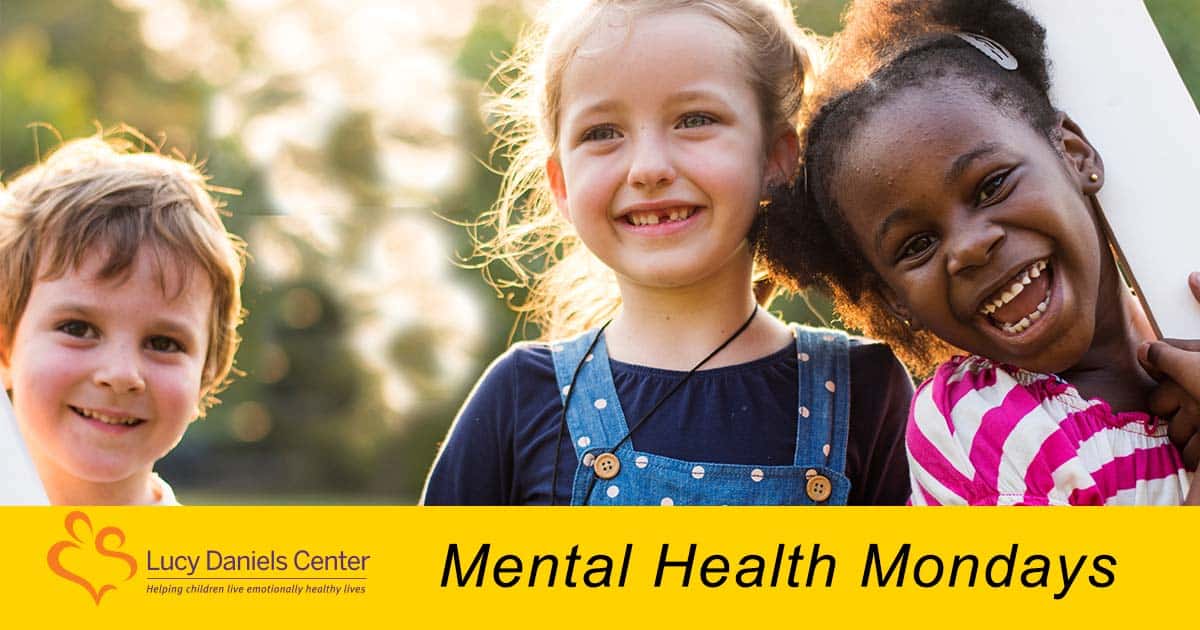Mental Health Mondays
Exclusion
Instances of exclusion occur in classrooms, neighborhoods, and on playgrounds among children of all ages. The reasons for a child to feel like excluding another – or for a child to feel or be excluded – can vary as much as personalities do. How to best help a child – whether she is the excluder or the excluded – will depend on the particular reasons for the occurrence as well as whether it is an isolated event or a persistent and ongoing social difficulty.
Excluding someone from play is a behavior. As with all behaviors, it is the expression of a feeling. The feeling may be about the other person (e.g, she is bossy) or may stem from something about oneself (e.g., I can only play here if I control who’s here and who isn’t). In some cases, a child may have a valid reason for wishing not to play with a particular child. In other cases, the wish to control the play, exclude others, and sometimes even tease may be related to other inside troubles a child is struggling with. Understanding the feeling (the cause) behind the behavior will aid in providing the most meaningful and lasting help.
Take, for instance, the following example:
Maya (5) and her mother visit the same neighborhood playground on a regular basis. Over time, Maya has started to tell Samantha (6) that she cannot play with her and her other playmates. Maya’s mother handles this by telling her to be polite and not leave anyone out. Maya now seems reluctant to play when Samantha is at the playground and instead lingers around her mother.
In this example, both Maya and Samantha need help with understanding what has happened between them. Maya’s mother notices the change in her behavior since she told her that she had to include Samantha. After some thought, she realizes that Maya doesn’t usually exclude other children and is actually quite open and flexible in her play. She decides to return to the subject to try to understand what happened between the two girls. This type of conversation can begin with a simple, non-critical observation: “Everything seemed to be going well with the other girls until Samantha tried to join you…” A statement such as this can often pave the way for a child to feel safe enough to share how she feels. Maya may answer with something revealing such as, “Samantha always takes all of the shovels! She is so bossy!”
The playground example with Maya and Samantha was an isolated incident for Maya. Samantha, on the other hand, finds herself excluded from groups of play in a number of settings, including school. Her teacher reports to her mother that she has not developed any friendships in class and instead often moves from group to group trying to enter play. When she does play in a group, she controls the roles of others and excludes those who do not follow her rules. Samantha has a persistent and ongoing problem, which is likely to continue until she can be helped to understand and take responsibility for her role in the situation.
Most children can be helped with the occasional occurrence of being the one who excludes or the one who is excluded by helping them to think about the reasons for their actions or their role in provoking reactions, if that is a factor. Yet, there are also many situations in which children are stuck on one side or another, often finding external explanations rather than being able to consider their motivations and role. Those situations often occur in the context of other emotional difficulties that a child is having and are reason to seek professional help.
Lucy Daniels School is an emotionally safe and supportive learning environment for children preschool-5th grade. Lucy Daniels School provides an alternative choice in our therapeutic school for children who struggle emotionally and academically in a mainstream school environment. At the Lucy Daniels School, each child’s education and therapeutic program is carefully tailored to his or her needs and strengths. Parents meet regularly with a parent guidance counselor. This collaborative approach helps children progress socially and academically to become successful and competent learners.

